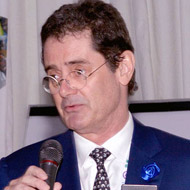
Position statement calls for new controls and regulations
The World Small Animal Veterinary Association (WSAVA) has published a new position statement strongly opposing the cat and dog meat trade.
Compiled by members of its Animal Wellness and Welfare Committee (AWWC), the position statement expresses grave concerns over the welfare of cats and dogs at all stages of the meat trade.
It also calls attention to growing evidence showing the public health risks the trade poses in terms of compromising rabies control efforts and increasing the risk of disease transmission.
The statement calls for the rigorous enforcement of existing laws and supports new controls and regulations where legislation does not exist, aimed at banning what it describes as 'an inhumane and dangerous practice'.
“We understand there are cultural sensitivities around this issue but, as an association focused on advancing standards of companion animal health and welfare, it is important for us to make a very clear statement of our position on the dog and cat meat trade,” explained co-chair of the AWWC, Dr Shane Ryan.
“We have serious concerns, not only about the welfare of the animals involved but, also about the potential health risks to the people who consume the meat. We are committed to working with our members, with veterinary professionals and with all other stakeholders to achieve positive change through education and consensus-building.”
The AWWC will launch the world’s first Global Welfare Guidelines for Companion Animal Practitioners at the WSAVA World Congress, Singapore, in 2018. The guidelines will provide animal welfare advice and direction for vets through all stages of companion animal-veterinary interaction.



 The Veterinary Medicines Directorate (VMD) is inviting applications from veterinary students to attend a one-week extramural studies (EMS) placement in July 2026.
The Veterinary Medicines Directorate (VMD) is inviting applications from veterinary students to attend a one-week extramural studies (EMS) placement in July 2026.